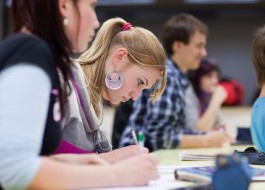
The Organization for Economic Co-operation and Development (OECD) released the results of its 2015 global rankings on student performance in mathematics, reading, and science, on the Program for International Student Assessment, or PISA.
Once again, the United States did poorly compared to other countries and territories, outranked by 38 countries in math, 24 in science, and 22 in reading, reinvigorating debate over what the US should do to improve its educational system.
Wendy Kopp, founder of Teach for America, believes part of the problem lies in the unwillingness of the US to travel to foreign countries to learn best practices.
"You know, having listened to the people who have led the charge on improving the school systems in, say, Finland or in Shanghai, I mean, some of the — you know, who have moved their systems from mediocre to the best in the world — the first thing they will say is we sent our educators abroad to learn, to open their minds about what is possible," Kopp said on Fareed Zakaria, GPS on Monday.
"I actually think one of our biggest challenges in the United States is that we're not doing that; we're not actually going out and seeing what are these countries that are doing so well doing differently," she continued.
Finland outperformed the US across the board on the most recent PISA exam. This year, Shanghai was grouped with other provinces in China, but it continues to be a top-performing area within the country. China outperformed the US in math and science.
The PISA exam is a worldwide study administered every three years by the Organization for Economic Cooperation and Development, and it measures 15-year-olds from different countries in math, science, and reading.
While the results could seem disheartening to Americans, Jon Schnur, the executive chairman of America Achieves, says there are factors that should provide some optimism for the US. The US was No. 1 in the world in closing the achievement gap in between wealthy and disadvantaged students, Schnur said on a press call last week.
You can watch the entire video of Kopp discussing PISA results below.




